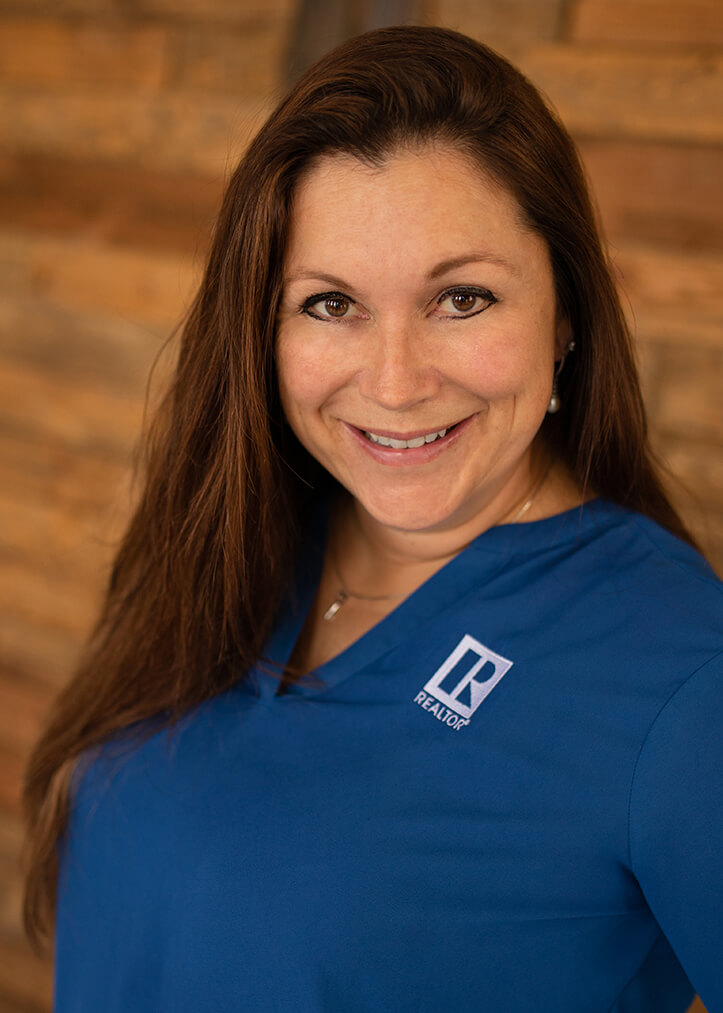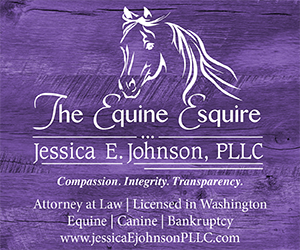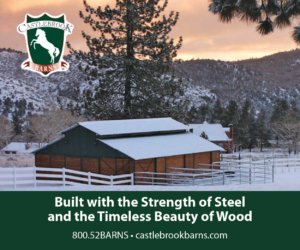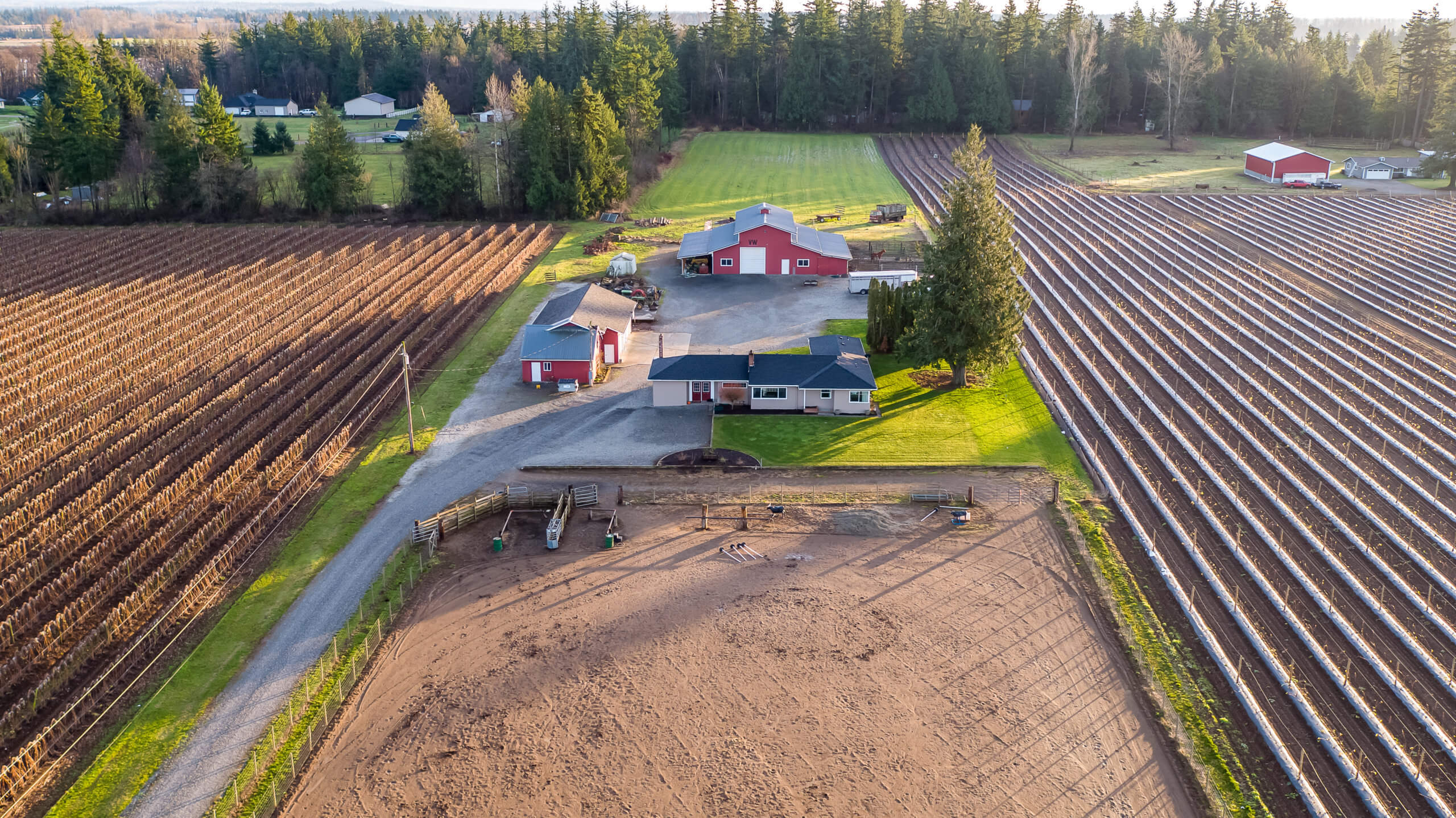It’s no secret that the real estate market has been quite active lately. Low inventory and low interest rates continue to make for an extremely competitive market, and many homeowners are reevaluating their living situation because of the pandemic. If you are thinking about selling an equestrian property this year, I want to offer some insight into the features that make the biggest impact on time on the market and sales price.
Barn features can vary wildly on equestrian properties. Number of stalls, runs, tack room, wash rack, grooming area, and feed storage all play into the desirability of a given property. More than anything, make sure these spaces are clean and organized.
It can be easy as a horse person to hoard tack and supplies (insert knowing giggle). But before it’s time to sell, devote some time to decluttering so a potential buyer can easily imagine their own clutter in the space.
Hay and equipment storage is always a plus. Whether there’s room in the barn, or there’s a separate storage option, covered space is coveted in the Northwest.
In the case of equestrian properties, buyers often have a hard time resisting asking for personal property like tractors and other farm equipment to be included in the sale. Technically, anything not considered real property is not included in the sale, but if there is a tractor or riding lawnmower on the property, buyers try and write it into the contract. I would suggest covering or removing any equipment that is not necessary for day-to-day activity in order to avoid this temptation.
An arena or round pen makes one horse property stand out over another. Even something as small as a 60-foot sand round pen gives a buyer the comfort of knowing they will have somewhere to ride year-round.
Portable fence panels are often an area of contention between sellers and buyers. Technically, panels are personal property unless they are fixed to the property (bolted to treated posts, for example). However, if the property is boasting an arena or round pen, and the photos present those features including panels, the buyer expects them to be included.
As a seller, make sure your Realtor® makes notes on the listing if there are excluded items.
Pastures and turnouts are buyer must-haves. The more fencing, the better. Buyers know how expensive fencing can be, so clean, safe fencing (especially with shelter) is very alluring.
Sacrifice area/winter turnout mitigate wintertime woes. A property that has already addressed the mud situation will stand out in comparison to other properties that have not. Freshen gravel or hog fuel in these areas prior to listing.
Manure management is a must. A compost bin and outline of how manure is managed on the property will be expected. The conservation district or extension service in your area should have good suggestions (and possibly grants) for developing a plan if there is not already one in place.
Internet options are key. Many equestrian properties are in areas where high-speed internet options are limited. For high-end properties, poor internet can be a deal killer, especially in this era of working from home.
Even if you have been able to work around the internet quality, many people buying horse properties these days are coming from urban lifestyles and will expect high-speed internet. Even a higher cost internet installation will see the returns in market value, especially when competing with rural properties with poor internet.
Price, location, and condition. In the end, these three factors remain the most impactful on the sale of real property. Horse people often do not focus as much on their home, opting to spend more time in the barn. Make sure that the home is as well presented as the property. Clean, safe, and as updated as possible will positively impact the sale.
Location is one thing that cannot be modified, and can have an impact of the price point, especially when buyers are comparing similar properties. Price is a function of all the forementioned points, and the market is ultimately what determines price.
Finally, always work with a Realtor® that specializes in equestrian properties and does significant volume. Ask for samples of their work and speak to their referrals. Proper representation is your best chance to target the right audience, feature the best aspects of your property, and troubleshoot inevitable issues to garner the best outcome.
See this article in the 2021 February online edition:

Allison Trimble is a Realtor® specializing in equestrian properties, farm and ranch properties, and residential real estate. She’s a former horse trainer, and a current owner, breeder, and non-pro competitor in cow horse and reining events. For many years, Allison wrote a monthly column for The Northwest Horse Source.
Learn more at www.allisonblakerealestate.com






